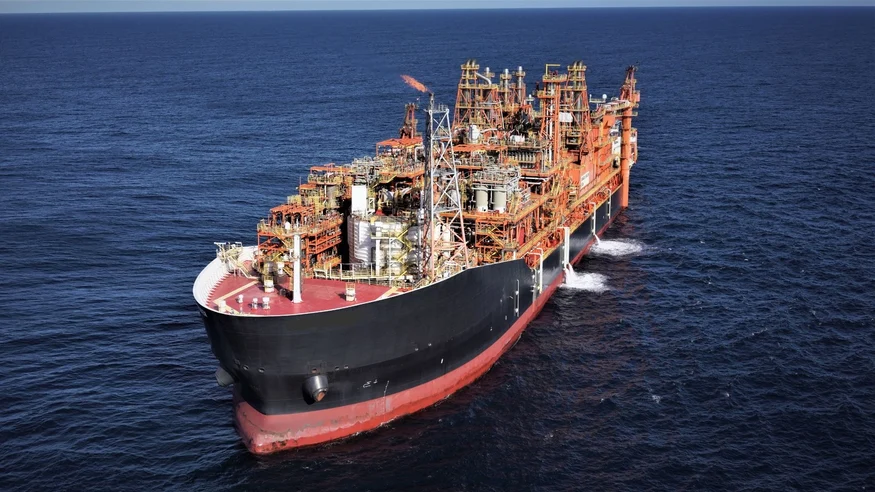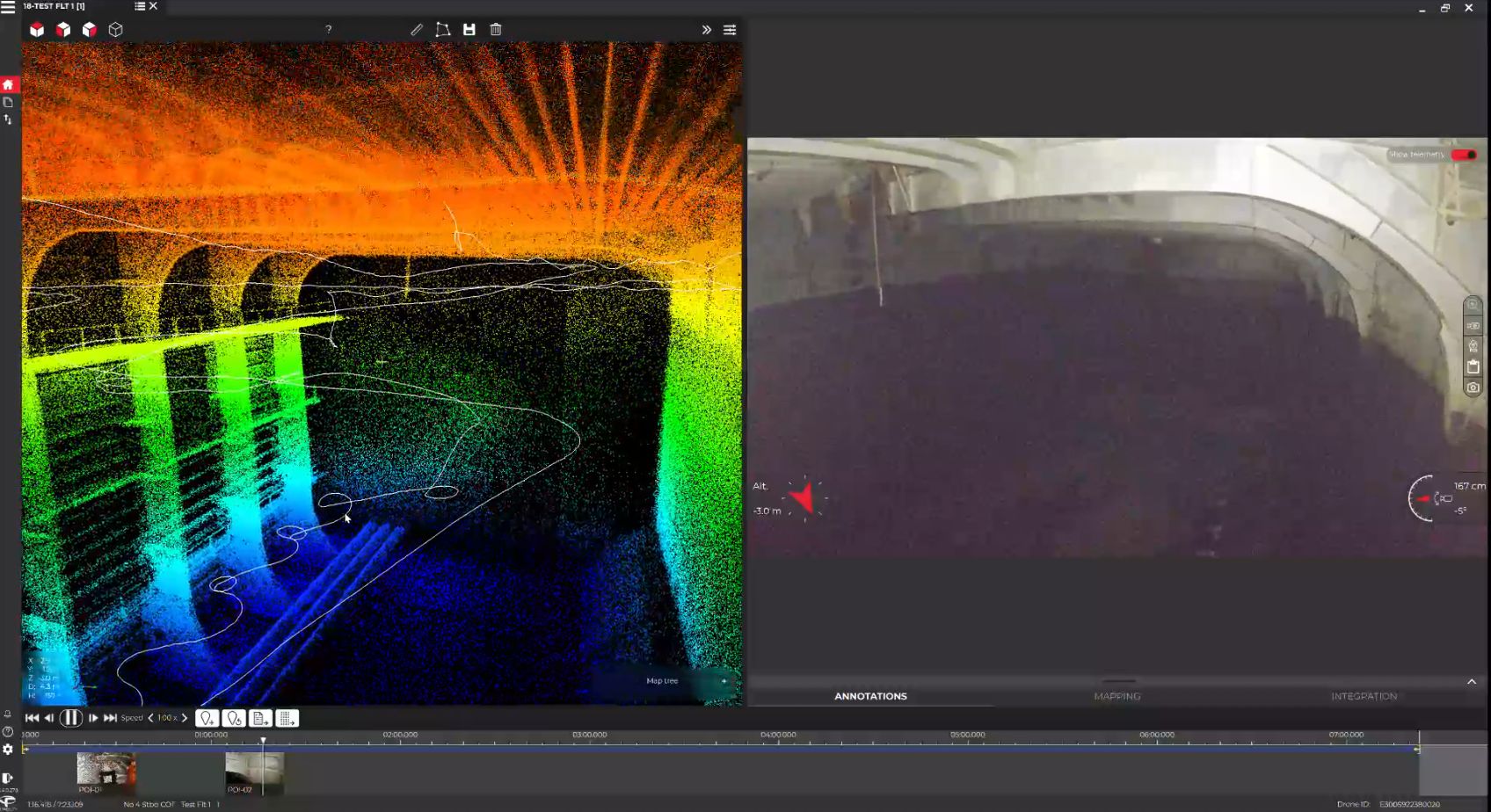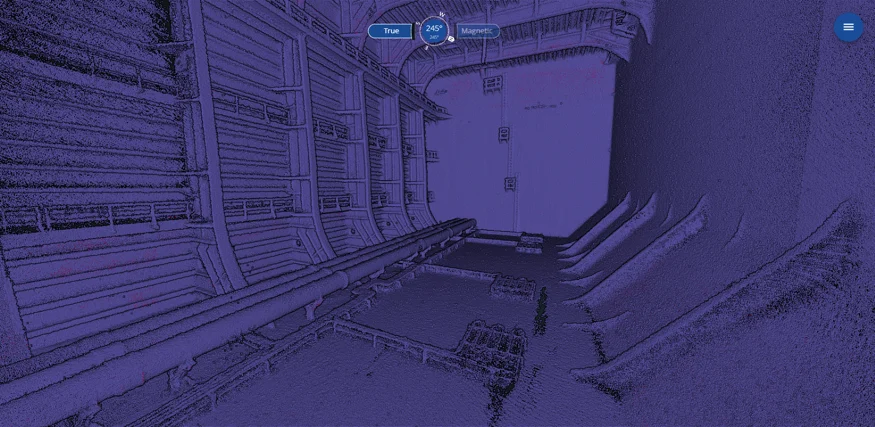TEXO leverages Elios drones to enhance efficiency, accuracy, and safety during oil tank inspections on FPSOs. Discover how they reduce risks and costs while improving data quality. Savings Traditional inspections require 4–5 rope access technicians who must wait for tanks to be emptied and cleaned before starting the process. This can take up to 7–10 days per tank, leading to high labor costs and significant production downtime. With Elios 3, only 2 people are needed, and the inspection can be completed in just 2 days per tank, drastically cutting both labor and operational costs. Speed Using traditional methods, inspecting one tank can take up to 10 days. Elios 3 reduces this to just 2 days, allowing inspectors to prioritize high-risk areas first and speed up maintenance processes. The ability to quickly identify issues helps minimize further delays and repairs. Safety Oil tank inspections involve working at height with rope access, which is inherently dangerous. Elios 3 allows pilots to remain safely on the ground, eliminating the need for workers to enter confined spaces and reducing the risk of accidents. Operational Efficiency Drone inspections require only two personnel, significantly reducing the need for crew space on FPSOs, which often operate under strict personnel limits. This frees up resources for other critical tasks, improving overall operational flexibility. Floating Production, Storage, and Offloading (FPSO) vessels are essential in offshore oil and gas operations. These massive structures process, store, and offload crude oil, offering flexibility and cost-effective solutions for remote fields. They are equipped with processing systems above deck and storage tanks below, often in double-hull configurations. FPSOs typically have crews of 50–70 people and require regular inspections for safety, compliance, and environmental reasons. TEXO, an inspection expert, was tasked with inspecting oil tanks on an FPSO. While dry dock inspections are relatively straightforward, those conducted while the vessel is in operation are far more complex. Tank inspections cannot be done all at once due to stability and operational requirements, limiting the number of tanks that can be inspected at a time. Traditional rope access methods are not only costly but also pose significant safety risks, especially when scaffolding is involved. Delays in preparation and the lengthy inspection process add to the financial burden, as production must be halted during the work. TEXO deployed the Elios 3 drone to inspect the oil tanks efficiently and safely. The team completed the task in just one week, using only two personnel. By flying the drone inside the tanks, they captured detailed 3D point cloud data, ensuring comprehensive coverage without exposing workers to hazardous environments. The Elios 3’s collision-resistant design allowed it to navigate tight spaces, making it ideal for inspecting complex structures like steam heating coils. The use of flight trajectories ensured full coverage, giving onshore engineers confidence that no area was missed. This level of detail and repeatability is difficult to achieve with traditional methods. Additionally, the ability to revisit the same data multiple times allowed different experts to analyze the results, adding layers of expertise to the inspection process. TEXO delivered an accurate inspection with detailed point cloud data, which was previously unattainable using traditional methods. The entire process took only 4 days, compared to the usual 2 weeks, and the client was highly satisfied. The inspection was conducted without any risk to personnel, and onshore teams had full confidence in the thoroughness of the survey. TEXO has found immense value in using Elios drones for oil and gas inspections. While Elios 2 offered improvements over rope access, Elios 3 brought enhanced features such as location referencing and point cloud generation, which are crucial for identifying and addressing issues effectively. As TEXO looks to expand its use of drones, they are particularly interested in applying the technology to semi-submersible vessels, where navigating confined spaces is a major challenge. With Elios 3, they can avoid putting workers in dangerous situations while maintaining high standards of inspection quality. TEXO Group is certified by DNV (Det Norske Veritas) as a service provider approved for using Remote Inspection Techniques (UAVs) as an alternative to close-up surveys of ship structures and mobile offshore units.
The cutting machine is suitable for the cutting of Chinese medicinal herbs including rhizomes,fruitages,leaves,and grasses etc before it being fine processed,grinded or extracted,as well as for the cutting process of foodstuff(sliced fruit,preserved fruit),aquatic products(sliced kelp),tobacco leaves,and tea leave etc.This slicing machine is composed of motor, variable speed mechanism, tool rest, step and retreat material, adjustable tool rest machinery and so on. Due to the use of advanced step feeding, so that the cut of the sheet shape uniform, can freely control the feeding distance, will not cause the material extrusion knife bad situation. Due to the reasonable layout, the machine is easy to operate, light appearance, light weight. This machine is mainly composed of two parts, such as conveying and cutting medicine, machinery and so on.
Herb Cutting Machine,Herb Cutter Machine,Herb Cutter,Slicing Machine,Electric Cutter JIANGYIN CITY XUAN TENG MACHINERY EQUIPMENT CO.,LTD , https://www.xuantengmixer.comTexo Case Study: Inspection of Oil Tanks on an FPSO
Key Benefits at a Glance
Introduction

Customer Needs
Solution


Results
Conclusion
July 13, 2025